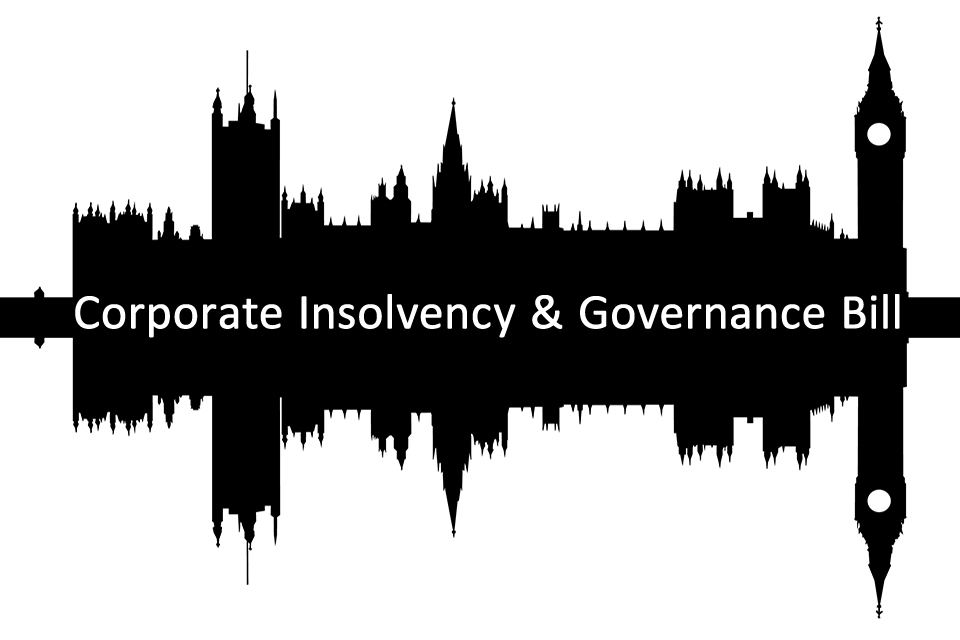Delivering balanced legislation business needs at pace
My name is Paul Bannister and I head up the policy team at the Insolvency Service. For more than a decade I have provided advice to government on the UK’s Competition and company law frameworks and various other regulatory regimes.
The coronavirus COVID-19 pandemic has placed an unprecedented strain on business. Not only has the virus seriously affected people’s health and wellbeing but the pandemic has severely impacted businesses’ viability.
The UK has a world-renowned insolvency regime and as the agency responsible for advising Government on how to ensure it supports economic confidence, we have been implementing at pace new corporate restructuring tools to give businesses the crucial breathing space they need at present.
The scale of the pandemic has put additional pressures on businesses and their directors, and we were concerned that existing insolvency and company law requirements could make surviving this difficult time even more challenging.
Read about support available from the government to help your business weather the pandemic.
A significant development to our insolvency framework
Following consultation with business, insolvency experts and representative bodies, we developed a balanced set of both permanent and temporary reforms which Parliament is now considering and which we expect to the passed into law later this month.
The Corporate Insolvency and Governance Bill is one of the most significant developments to our insolvency framework in many years.
Download a copy of the Corporate Insolvency and Governance Bill and read the explanatory notes which explain what the bill does.
It delivers the support viable businesses need to ride out the pandemic; breathing space to consider their options and new tools to help them emerge ready to grow again.
This includes:
- permanently introducing a new moratorium period so that businesses can get the specialist advice they need without the threat of legal action from their creditors
- businesses providing essential supplies will not be able to cease or change the terms of their contracts to companies in a moratorium
- a new restructuring plan that brings in cross-class cram down to bind creditors to it, even those that vote against it, and this provision takes steps to provide safeguards for affected creditors in these situations
- suspending three provisions in our existing insolvency law framework which have the potential to frustrate a business trading through the pandemic. Directors are being given temporary relief from the threat of personal liability, statutory demands will not be able to be served, and winding up petitions won’t be able to presented where the cause of company indebtedness arises from the pandemic.
Drafting the bill
Drafting a 240-page bill and at speed has certainly been challenging and has involved my team working with legal colleagues at BEIS and the Parliamentary Counsel.
In order to enable the bill to be put on the statute books quickly we engaged extensively with the Parliamentary Liaison Committee, the Official Opposition, business and retail groups, private companies, trade unions and the insolvency profession.
This included close liaison with organisations such as the Institute of Directors, CBI and the Federation of Small Business, as well as the insolvency experts such as the City of London Law Society and the Insolvency Law Association, and of course R3. Ordinarily this process takes many months, frequently more than a year, and the final bill introduced to Parliament on 20 May has benefitted from their input.
Sign-up to receive alerts to keep up to date with developments at the Insolvency Service
The resulting Bill has been carefully designed, balancing the requirements of not only directors and their companies but also the rights of creditors and the supply chain, to ensure that there are protections for all, backed by sanctions should there be any attempt to game these changes.
Personally, working on this legislation has been one of the biggest projects I’ve undertaken in my career and I’m very grateful to have been so well supported by my colleagues to see it to fruition. I have been particularly impressed by their willingness to put in the hours and effort needed to get such a large piece of work done in such a short space of time. All of the team have been working very late nights and weekends.
We expect that the legislation will provide the flexibility and breathing space for directors to explore all options available to them - providing a lifeline to companies large and small to deal with the pressures of the pandemic and enabling them to continue employing people – while at the same time improving our insolvency framework which does much to promote economic prosperity and growth.


1 comment
Comment by Andrew Thompson posted on
Drafting the bill will not be so easy it looks so far. Well, documented blog.
https://kicksreplica.com